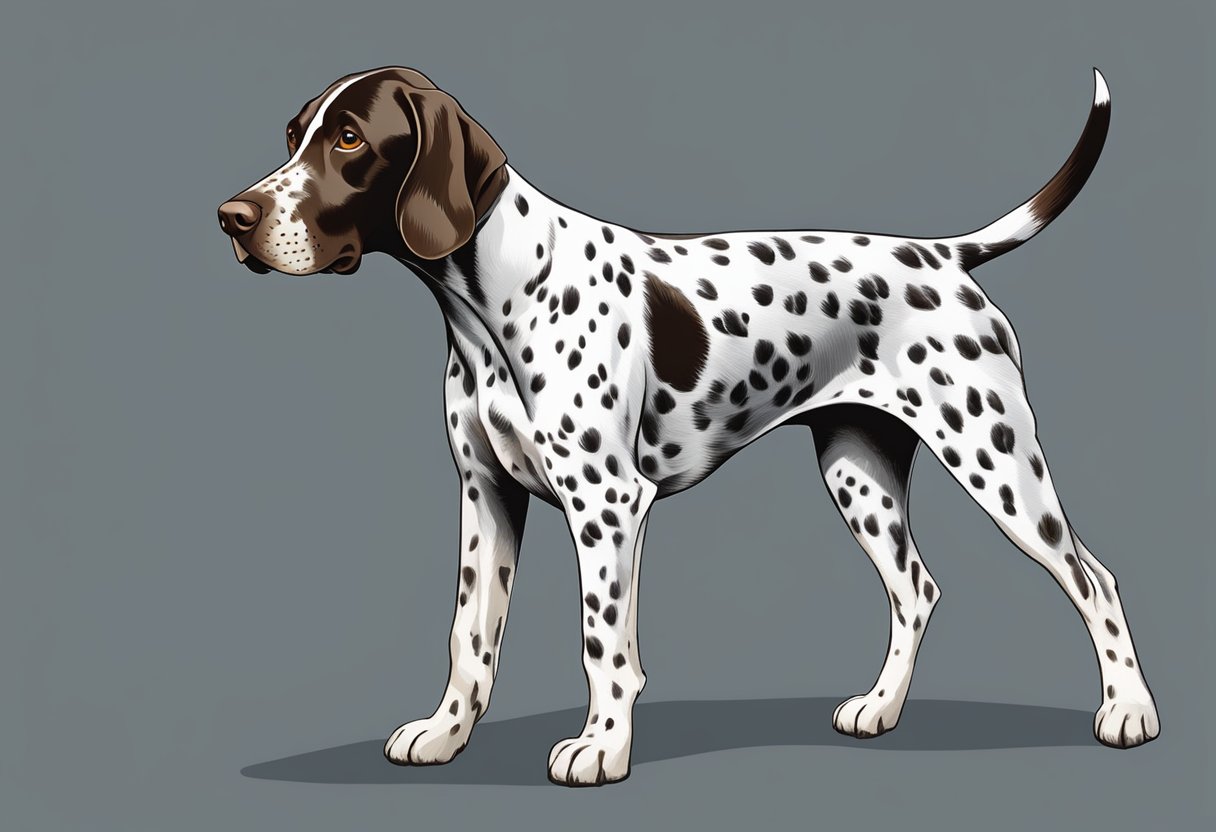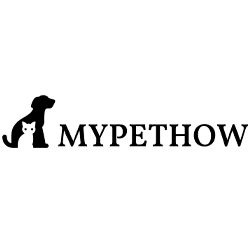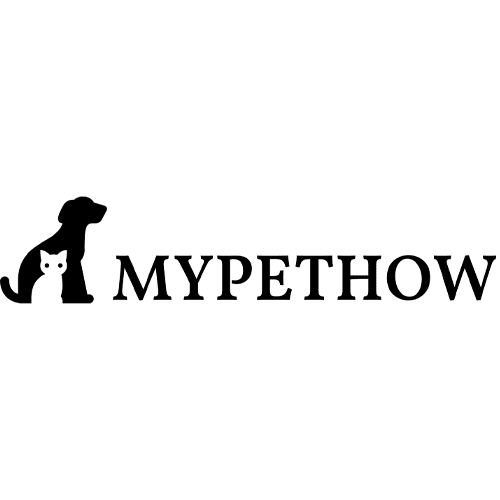German Shorthaired Pointers are a popular breed of dog that are known for their athleticism, intelligence, and loyalty. However, for people with allergies, owning a dog can be a challenge. Many people with allergies are allergic to pet dander, which is the dead skin cells that are shed by dogs and other animals. This can cause a variety of symptoms, such as sneezing, runny nose, and itchy eyes. In this article, we will explore whether German Shorthaired Pointers are hypoallergenic and what factors can affect their hypoallergenic properties.

Understanding Hypoallergenic Dogs is important for people who are considering getting a dog but are concerned about allergies. While no dog is completely hypoallergenic, some breeds are better suited for people with allergies than others. Hypoallergenic dogs are dogs that produce fewer allergens than other dogs. This can be due to a variety of factors, such as the type of coat they have, how much they shed, and how much dander they produce. In the next section, we will provide an overview of German Shorthaired Pointers and their characteristics.
Key Takeaways
- German Shorthaired Pointers are not hypoallergenic, but some people with allergies may be able to tolerate them better than other breeds.
- Factors that can affect the hypoallergenic properties of German Shorthaired Pointers include their coat type, shedding, and dander production.
- Proper grooming and care can help reduce allergens in the home and make living with a German Shorthaired Pointer more manageable for people with allergies.
Understanding Hypoallergenic Dogs
Hypoallergenic dogs are breeds that produce fewer allergens than other breeds. Contrary to popular belief, hypoallergenic dogs are not completely allergen-free. However, they are less likely to cause an allergic reaction in people with allergies.
The allergens in dogs come from their skin, urine, and saliva. When dogs shed their hair, they also shed tiny flakes of skin called dander. Dander contains the allergens that trigger allergic reactions in people. Dogs with hair instead of fur, or with a single coat instead of a double coat, may produce less dander and therefore be less allergenic.
It’s important to note that not all people with allergies react the same way to the same breed of dog. Some people may be allergic to one breed but not another. In addition, individual dogs of the same breed may produce different levels of allergens.
German Shorthaired Pointers are not considered hypoallergenic dogs. They have a short, thick top coat and a dense, water-repellent undercoat. While they may shed less than other breeds, they still produce dander and can trigger allergic reactions in people with allergies.
If you have allergies and are considering getting a dog, it’s important to spend time with the breed you’re interested in to see if you have a reaction. You can also consult with an allergist to determine which breeds may be better suited for people with allergies.
German Shorthaired Pointer: An Overview
The German Shorthaired Pointer (GSP) is a medium-to-large sized breed of dog that is native to Germany. They are known for their athletic build, floppy ears, and signature liver brown colors on their short coat. GSPs are intelligent, friendly, and energetic dogs that require a lot of exercise and mental stimulation.
One of the most common questions asked about GSPs is whether they are hypoallergenic. Unfortunately, GSPs are not hypoallergenic. They have a short, coarse coat that sheds regularly, which can cause allergies in some people. However, GSPs are relatively low-maintenance when it comes to grooming. They only need to be brushed once a week and bathed as needed.
GSPs were originally bred as hunting dogs, and they have a strong drive to find and chase game. They are versatile all-purpose gun dogs suitable for hunting and retrieving on both land and water, with great endurance and a powerful build. GSPs are also loyal and affectionate companions, and they make great family pets.
In terms of health, GSPs are generally a healthy breed with a lifespan of 10-12 years. However, like all breeds, they are prone to certain health issues, including hip dysplasia, bloat, and ear infections. It is important to keep up with regular veterinary check-ups and to provide proper care and nutrition to ensure the health and well-being of your GSP.
Hypoallergenic Properties of German Shorthaired Pointers

German Shorthaired Pointers are a popular breed of hunting dogs known for their versatility and intelligence. However, when it comes to hypoallergenic properties, they may not be the best choice for people with allergies.
While GSPs have a shorter coat than some other breeds, they are not considered to be hypoallergenic. They have a thick, water-repellent undercoat beneath their short topcoat, which can shed dander and cause allergic reactions in some people.
However, it’s important to note that the severity of allergic reactions can vary from person to person. Some people may not experience any symptoms around GSPs, while others may have severe reactions.
If you’re considering getting a GSP but have allergies, it’s recommended to spend some time around the breed to see how your body reacts. You may also want to consult with an allergist to determine the best course of action.
Factors Affecting Hypoallergenic Properties

German Shorthaired Pointers are not hypoallergenic dogs. However, some people may experience fewer allergy symptoms around them compared to other dog breeds. Several factors can affect the hypoallergenic properties of German Shorthaired Pointers, including:
Coat Type
German Shorthaired Pointers have a short, thick coat that requires minimal grooming. They shed moderately throughout the year, but they tend to shed more during seasonal changes. While their coat does not produce less allergens, it may be easier to manage compared to longer-haired breeds. Regular grooming and bathing can help reduce the amount of dander and allergens that are released into the air.
Allergen Sensitivity
Allergen sensitivity varies from person to person. Some people may be more sensitive to pet allergens than others. While German Shorthaired Pointers are not hypoallergenic, some people may experience fewer allergy symptoms around them compared to other dog breeds. However, it is essential to note that no dog breed is entirely hypoallergenic.
Dander Production
Dander is the skin flakes that fall off a dog’s coat and can trigger allergy symptoms in sensitive individuals. German Shorthaired Pointers produce dander like any other dog breed. However, some people may experience fewer allergy symptoms around them compared to other dog breeds. Regular grooming and bathing can help reduce the amount of dander and allergens that are released into the air.
Environmental Factors
Environmental factors such as pollen, dust, and mold can exacerbate allergy symptoms in sensitive individuals. German Shorthaired Pointers may bring in allergens from outside, such as pollen, on their coat. Regular grooming and bathing can help reduce the amount of allergens that are brought into the home. Additionally, keeping the home clean and dust-free can help reduce allergy symptoms.
Grooming and Care for German Shorthaired Pointers
German Shorthaired Pointers have a short, smooth coat that is easy to maintain. However, they do shed and require regular grooming to keep their coat healthy and shiny. Here are some tips for grooming and caring for your German Shorthaired Pointer:
Brushing
Regular brushing is important to control shedding, remove loose hair, and keep the coat healthy. A rubber grooming mitt or a bristle brush works well for their coats. Brushing should be done at least once a week, and more frequently during shedding season.
Bathing
Infrequent baths are recommended for German Shorthaired Pointers. Bathing too often can strip their coat of natural oils and cause dry skin. However, if your GSP rolls in something smelly, a bath may be necessary. Use a mild dog shampoo and rinse thoroughly to avoid leaving any residue on their coat.
Ears
Check your GSP’s ears regularly for any signs of infection or irritation. Wipe the inside of their ears with a damp cloth or cotton ball to remove any dirt or debris. Be gentle and avoid using cotton swabs, as they can push debris further into the ear canal.
Nails
Trim your GSP’s nails regularly to prevent them from becoming too long and causing discomfort. Use a sharp, high-quality nail clipper and be careful not to cut the quick, which is the pink part of the nail that contains blood vessels and nerves. If you are unsure about trimming your GSP’s nails, consult a veterinarian or professional groomer.
Teeth
Good dental hygiene is important for your GSP’s overall health. Brush their teeth regularly with a dog-specific toothbrush and toothpaste to prevent tartar buildup and gum disease. You can also provide dental chews or toys to help keep their teeth clean.
Managing Allergies Around German Shorthaired Pointers
German Shorthaired Pointers are not hypoallergenic dogs, and they can trigger allergic reactions in sensitive individuals. However, there are several strategies that can help manage allergies around these dogs.
One of the most important steps is to keep your GSP clean and well-groomed. Regular bathing, brushing, and grooming can help remove loose hair, dander, and other allergens from their coat. It is also important to keep your home clean and free of pet hair and dander. This can be achieved through regular vacuuming, dusting, and using air purifiers with HEPA filters.
Another important strategy is to manage your GSP’s diet. Some dogs may be allergic to certain ingredients in their food, such as wheat, soy, or corn. Switching to a hypoallergenic diet or a limited-ingredient diet can help reduce the risk of food allergies. It is also important to avoid giving your GSP table scraps or human food, as this can trigger allergic reactions.
If your GSP suffers from environmental allergies, such as pollen or dust mites, it may be necessary to give them medication to manage their symptoms. Antihistamines, corticosteroids, and immunotherapy are all options that can help reduce itching, sneezing, and other allergy symptoms.
Finally, it is important to work closely with your veterinarian to develop a comprehensive allergy management plan for your GSP. This may include regular check-ups, allergy testing, and ongoing medication or treatment as needed.
By following these strategies, it is possible to manage allergies around German Shorthaired Pointers and enjoy the company of these wonderful dogs without suffering from allergic reactions.
Alternative Hypoallergenic Breeds
While German Shorthaired Pointers are not hypoallergenic, there are several breeds that are better suited for allergy sufferers. These breeds have predictable, non-shedding coats that produce less dander and are less likely to cause an allergic reaction.
One popular hypoallergenic breed is the Poodle. Poodles come in three sizes, standard, miniature, and toy, and have a curly, non-shedding coat that requires regular grooming. They are intelligent, trainable, and make great family pets.
Another hypoallergenic breed is the Bichon Frise. These small, fluffy dogs have a soft, curly coat that does not shed and produces less dander. They are friendly, playful, and make great companions for families with children.
The Chinese Crested is another hypoallergenic breed that comes in two varieties, hairless and powderpuff. The hairless variety has smooth, soft skin with hair on its head, tail, and feet, while the powderpuff variety has a long, soft coat that does not shed. They are affectionate, loyal, and make great lap dogs.
Other hypoallergenic breeds include the Yorkshire Terrier, the Shih Tzu, and the Maltese. It is important to note that while these breeds are less likely to cause an allergic reaction, no dog is entirely hypoallergenic, and people with severe allergies may still experience symptoms.
Frequently Asked Questions
Are German Shorthaired Pointers aggressive?
German Shorthaired Pointers are not supposed to be aggressive dogs. However, as with any dog breed, GSPs can develop aggressive behavior due to social confusion, fear, anxiety, stress, or other underlying issues. Proper training and socialization can help prevent aggression in GSPs.
What are the disadvantages of German Shorthaired Pointers?
Some disadvantages of owning a German Shorthaired Pointer include their high energy level and need for exercise, which can make them unsuitable for apartment living. They also require a lot of mental stimulation and can become destructive if bored. GSPs may be difficult to train and can exhibit stubborn behavior, making them better suited for experienced dog owners. Additionally, they can be prone to certain health issues such as hip dysplasia and heart disease.
Do German Shorthaired Pointers shed a lot?
German Shorthaired Pointers are moderate shedders, and their coat sheds mostly in the spring and fall. However, in warmer climates, they may shed consistently throughout the year. Weekly brushing can help reduce shedding, and bathing is only necessary every few months.
Are German Shorthaired Pointers good with cats?
German Shorthaired Pointers have a natural instinct to hunt and may not be very compatible with cats or other small animals. However, with proper training and socialization, they can learn to coexist peacefully with cats and other pets in the household. It is important to supervise their interactions and provide positive reinforcement to encourage good behavior.
Conclusion
In Conclusion, German Shorthaired Pointers are not hypoallergenic, but regular grooming and a clean environment can help manage allergies. It’s recommended to spend time with the breed before owning one to gauge your allergy response. If allergies are severe, considering other hypoallergenic breeds may be beneficial.











































